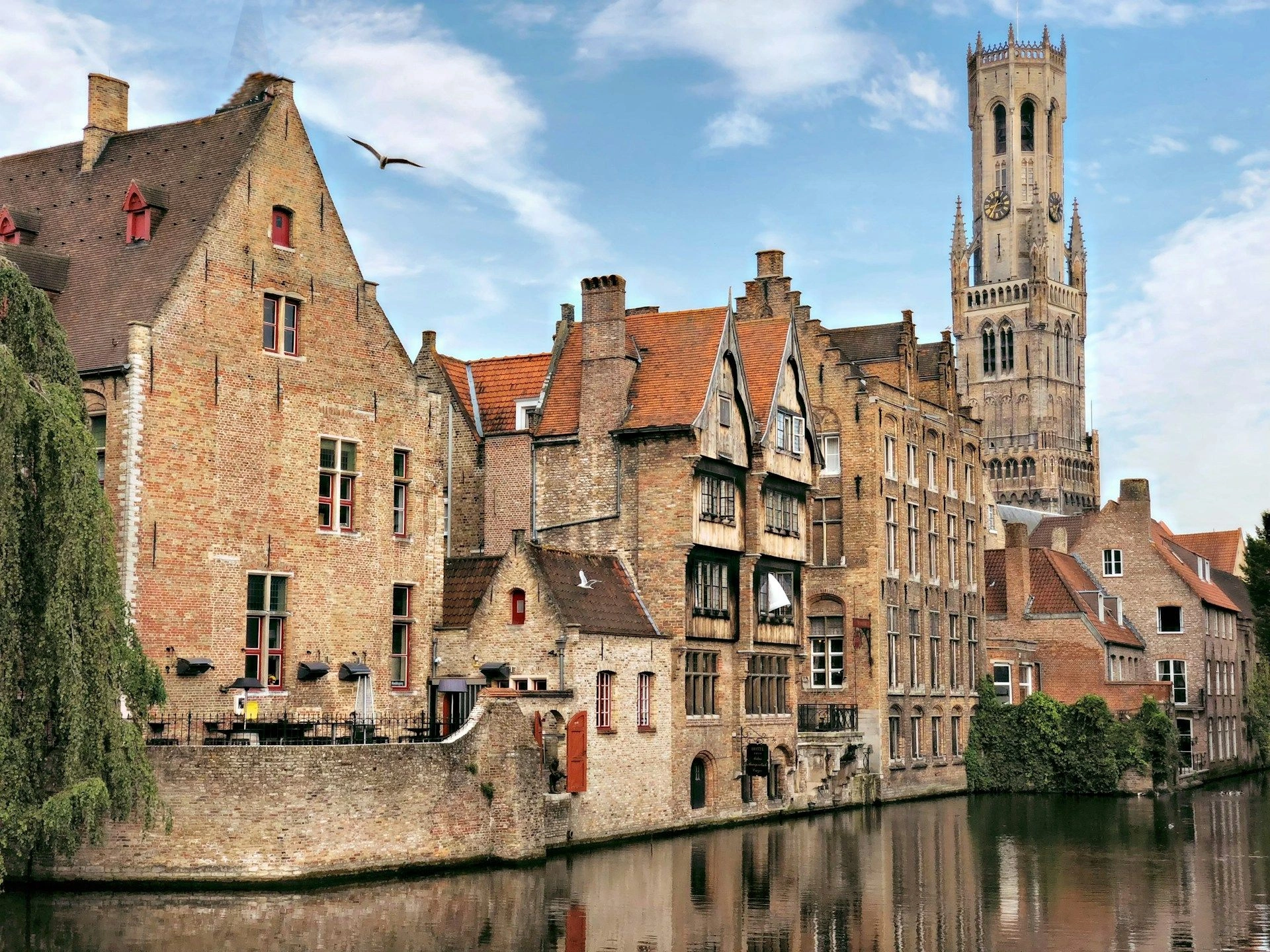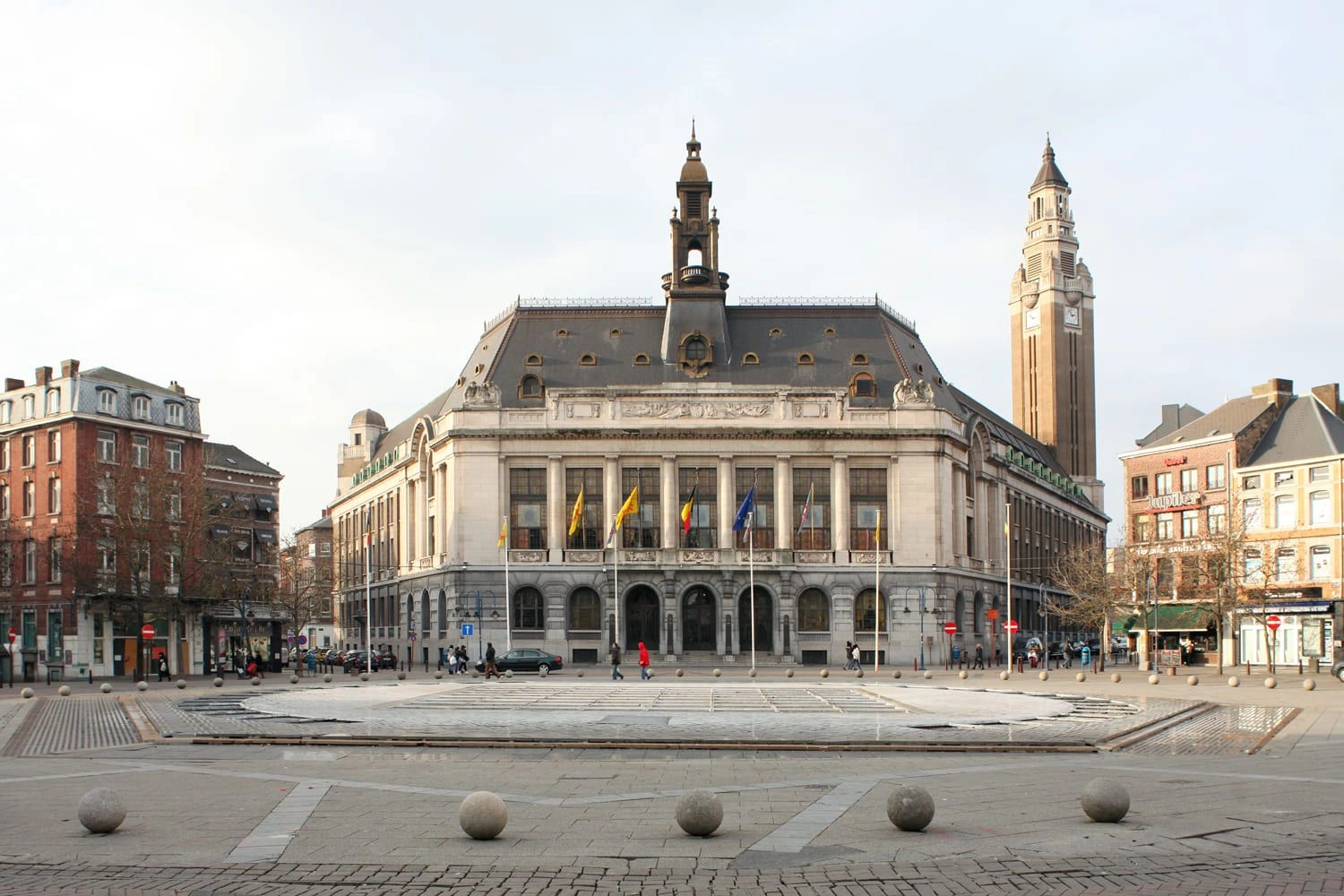Belgium Investment Property ListingsSmall country with highhousing demand

Best offers
in Belgium
Benefits of investment in
Belgium real estate

Guide for real estate
investors in Belgium
read here
EU capital with institutional demand
Brussels is home to the European Union and international organizations — driving rental demand from diplomats and expats.
Affordable entry for central Europe
Compared to nearby capitals, Belgium offers relatively accessible prices in a strategic location.
Tenant-friendly but balanced regulation
Belgian law protects tenants but also ensures fair conditions for owners, ideal for long-term investment.
EU capital with institutional demand
Brussels is home to the European Union and international organizations — driving rental demand from diplomats and expats.
Affordable entry for central Europe
Compared to nearby capitals, Belgium offers relatively accessible prices in a strategic location.
Tenant-friendly but balanced regulation
Belgian law protects tenants but also ensures fair conditions for owners, ideal for long-term investment.
Property highlights
in Belgium, from our specialists
Found: 0

Useful articles
and recommendations from experts
Main Real Estate Market Overview in Belgium
Belgium’s real estate market has steadily evolved into an appealing option for international investors seeking to purchase residential or commercial properties in the heart of Europe. Bordered by major economic powerhouses such as France, Germany, and the Netherlands, Belgium benefits from its strategic geographic location and well-developed infrastructure. As the host country for many European Union institutions, including the European Commission and the European Parliament in Brussels, Belgium attracts a significant expat population as well as a diverse range of businesses. These factors, combined with moderate property price appreciation over the years, create a stable environment that many foreign buyers view as a gateway to European investments.
Foreign investors who enter the Belgian property market are often drawn by its reputation for political stability, reliable legal structures, and a transparent regulatory system. Although Belgium consists of three distinct regions—Flanders, Wallonia, and the Brussels-Capital Region—property transaction rules remain fairly standardized overall, with local nuances. Prices vary based on the region and city: Brussels, for instance, typically sees higher property values due to strong demand and the presence of key European institutions. Antwerp, as a major port city, has its own bustling market shaped by international trade and growing cultural influence, while cities like Ghent and Leuven appeal to students, professionals, and retirees seeking a vibrant yet comparatively affordable setting.
While global economic conditions can temporarily influence Belgium’s real estate market, the country has a track record of weathering downturns better than some of its European neighbors. There is sustained demand for quality housing among the local population and expatriates who move to Belgium for work in governmental organizations or multinational corporations. Belgium also boasts a comprehensive public transport network—covering trains, trams, and buses—which underpins consistent interest in properties beyond the major downtown areas. This reliable demand supports steady price growth and helps insulate the Belgian market from severe volatility.
In comparison to certain other European destinations, the pace of property price increases in Belgium has been relatively measured. This means investors often find accessible price points in suburban neighborhoods or mid-sized cities. Moreover, strong tenant protection laws and reliable contracts support a balanced rental market. Investors willing to adopt a long-term perspective can capitalize on regular rental yields, especially in areas popular with students, young professionals, or transient EU staffers. Thanks to the overall stability and measured growth, Belgian real estate holds enduring appeal for those seeking to diversify their property portfolios in a steady, centrally located European country.
Key Benefits of Investing in Belgium Real Estate
Belgium’s status as a highly developed country with a resilient economy is one of its main selling points for international property investors. The combination of moderate growth, strong public institutions, and a well-regulated banking system fosters confidence in the Belgian market, regardless of short-term fluctuations in global or regional trends. Investors consistently view Belgian property as an asset with long-range value, rather than a market prone to sharp booms and busts.
Another advantage is the relative ease of property ownership for foreigners. Belgium does not impose major restrictions on international buyers; individuals from outside the EU can, in principle, purchase real estate on par with Belgian nationals, with only minor administrative differences. This openness stands in contrast to some other European countries that enforce quotas or require special permits for foreign property ownership. The accessibility of the Belgian market helps maintain a healthy level of foreign capital inflow, benefiting both local sellers and international buyers seeking clear legal pathways.
The country’s rental market is also robust. Brussels in particular is well known for its steady demand for both short- and long-term rentals. Employees of the European Union, NATO, and numerous multinational corporations rotate in and out of the city regularly, driving constant demand for quality rental homes and apartments. Landlords can often secure stable occupancy rates, as many expats prefer to rent rather than commit to buying during their postings. This environment can be highly beneficial to investors focusing on recurring rental yields.
Moreover, Belgium’s high standard of living and advanced infrastructure draw students and professionals not just to Brussels, but also to cities like Antwerp, Ghent, and Liège. From world-class healthcare to excellent educational institutions, the country has cultivated a comfortable environment for individuals of all ages and backgrounds. This broad appeal stabilizes property values and can turn even smaller towns with good transport links into attractive investment prospects.
For those looking beyond mere property appreciation and rental income, living in Belgium can potentially facilitate a path to long-term residency and, eventually, Belgian citizenship. While the country does not operate a formal “golden visa” program, foreign nationals who establish a business or become employed in Belgium can secure a residence permit, which can lead to permanent residency if certain conditions are met. By residing in Belgium for several consecutive years, individuals may become eligible for citizenship, gaining access to the European Union’s extensive benefits. Although residency by real estate investment alone is not specifically legislated, property ownership can be a valuable asset for foreigners who wish to develop ties in the country and ultimately strengthen their residency applications.
Best Cities and Regions for Investment in Belgium
Investors exploring Belgian real estate frequently narrow their focus to four primary areas: Brussels, Antwerp, Ghent, and Bruges. Each has a unique character and different market dynamics. Brussels, the capital, stands out not only for its role as the de facto capital of the European Union but also for its multilingual, cosmopolitan nature. Real estate in central Brussels can be quite competitive, with prices reflecting the high demand for both owner-occupied homes and rental properties. Neighborhoods near the EU institutions—such as the European Quarter—or areas close to the city center, like Ixelles and Saint-Gilles, are coveted for their vibrant cultural scenes and proximity to public transport.
Antwerp, situated in Flanders, is a vital port city with thriving commerce, a renowned fashion industry, and a lively cultural atmosphere. Property investors appreciate Antwerp for its combination of historical charm and modern economic dynamism. Housing demand remains strong among local professionals, international traders, and students, making Antwerp’s rental market an attractive option. Additionally, property values in Antwerp are often slightly more affordable than in Brussels, providing a potentially higher margin for value growth over time.
Ghent, also in the Flemish Region, is widely recognized for its university, innovative startups, and historical architecture. The youthful energy permeating the city keeps rental demand high, particularly in areas surrounding Ghent University. The city’s dynamic cultural life, anchored by festivals and international events, further increases its appeal to students, academics, and entrepreneurs. Investors who purchase properties near public transport or academic hubs typically observe steady tenant occupancy.
Meanwhile, Bruges—famed for its medieval center and canals—stands out as a major tourist destination. Demand for short-term rentals can be robust, especially for properties within walking distance of the city’s historic center. However, foreign buyers should be aware that tourist-centric investment strategies come with seasonal fluctuations. Bruges’s tourism numbers tend to spike in spring and summer, requiring a strategic rental approach. Nonetheless, if a property can capture high demand during peak season and maintain reasonable occupancy in off-peak months, it can yield solid returns over a longer horizon.
Outside of these prominent cities, Wallonia’s larger towns (like Namur or Mons) and the Liège area also present opportunities, often at lower price points. A balanced approach—considering each region’s economic prospects, cultural offerings, and the potential tenant base—can guide savvy investors to promising pockets of Belgium. As always, partnering with a knowledgeable local real estate agent can help navigate any language differences or regional regulations that might affect pricing and legal considerations.
Legal and Financial Aspects of Buying Property in Belgium
Belgium maintains a relatively open stance on foreign ownership of real estate, allowing non-resident investors to purchase property much the same as Belgian nationals. While you will need a valid passport and documented proof of financing, there is no overarching legal barrier to foreign acquisitions of residential or commercial properties. Once you find a suitable property, the process typically involves signing a purchase agreement (compromis de vente or verkoopcompromis), paying a deposit—usually 10%—and then finalizing the deal via a notary, who ensures that all taxes and fees are handled properly.
Transaction costs include notary fees and registration duties, which vary depending on the region. In the Brussels-Capital Region and Wallonia, registration fees can hover around 12.5% of the purchase price, while in Flanders the rate is generally around 12%, with potential reductions for smaller or energy-efficient properties. Legal expenses and notary fees often range from 1% to 3% of the purchase price, reflecting the notary’s essential role in preparing contracts, verifying property details, and ensuring compliance with regional regulations. Mortgage registration fees, if applicable, add a small additional expense, so it’s important for buyers to budget accordingly.
Financing options in Belgium tend to be accessible to foreigners with stable income sources or substantial assets. Belgian banks may request more detailed financial documentation from foreign buyers, including proof of legal residency if you plan to reside in the property. Mortgage interest rates have historically been moderate in Belgium, offering a reasonable pathway to leverage for those aiming to optimize their returns on real estate investments. However, a foreign buyer should check the specific conditions tied to non-resident lending, as banks might impose stricter loan-to-value limits or require higher down payments to mitigate risk.
Although Belgium does not operate a dedicated “golden visa” program tied directly to real estate purchases, it is possible for foreign entrepreneurs and highly skilled professionals to seek temporary residency through a work permit or business registration. Over time, this can evolve into permanent residency and, eventually, Belgian citizenship, once the individual meets residency duration and language skill requirements. For most, though, property ownership itself does not grant immediate residency rights—this is important to clarify early on, so that prospective investors do not assume that a property purchase alone automatically leads to a residence permit.
Belgium’s taxation system addresses both national income taxes and regional property-related taxes. Owners of rental properties must declare rental income in their annual tax returns, although the effective taxed amount might be partially based on a notional rental value rather than the actual rent received. Capital gains tax may apply if the property is sold within a specified timeframe (usually within five years for certain types of residences). Given these nuances, many international investors partner with tax consultants or attorneys who specialize in Belgian property law to ensure thorough compliance and optimized returns.
Ultimately, the Belgian property market offers a balanced mix of accessibility, long-term capital growth, and robust rental demand. Investors from outside the country can navigate the process with relative ease, thanks to transparent legal frameworks and strong financial institutions. Whether you are looking to place your money in a stable European market, seeking a home near the EU’s main decision-making centers, or wanting to leverage property ownership as a stepping stone to eventual residency, Belgium’s real estate landscape has much to offer. If you are ready to explore the opportunities, consider contacting a specialized real estate agent or legal advisor who can clarify regional differences, guide you through the purchasing process, and help you position your investment for lasting success in Belgium.







